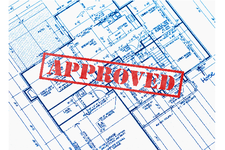HOLIDAY CHECKLIST AND REGULATIONS

There is no better time than now, to review your short-term insurance cover on your home and business assets. Give your security company a call to check your alarm, possible faulty camera's or electric fences to make sure you can enjoy your holiday with assurance. “Now is the best time to review your short-term insurance cover on your home and business assets, to ensure that you have remembered to advise of any recent changes, before you embark on your festive season break. It’s also a great idea to give your security company a call to test your alarm and to identify faulty camera's, electric fences, or other security devices.
In addition to the security check, it is advisable to review the following below to ensure that all the required regulations on your premises are up to date:
REGULATIONS THAT MAY HAVE AN INFLUENCE ON YOUR SHORT-TERM INSURANCE COVER
OCCUPATION CERTIFICATE
 A certificate of occupancy (OC) is issued by your local municipality and is required by law. The certificate is needed when you build a new house from scratch or carrying out any “alteration, conversion, extension, rebuilding, re-erection, subdivision of or addition, or repair of any part of the structural system”. This is essentially your guarantee that everything in your new property had been approved by the relevant authorities.
A certificate of occupancy (OC) is issued by your local municipality and is required by law. The certificate is needed when you build a new house from scratch or carrying out any “alteration, conversion, extension, rebuilding, re-erection, subdivision of or addition, or repair of any part of the structural system”. This is essentially your guarantee that everything in your new property had been approved by the relevant authorities.
An occupation certificate is required for every type of building, and will be required before any water and electricity deposits will be accepted for newly built properties. Once you have your Occupation Certificate it is advised that you lodge copies with your bank (if the property has a bond) and with your property insurance provider.
GAS INSTALLATIONS
 Using gas installations in the home has become increasingly popular among many South African home-owners, due to rapidly increasing cost of electricity and the regular occurrence of loadshedding.
Using gas installations in the home has become increasingly popular among many South African home-owners, due to rapidly increasing cost of electricity and the regular occurrence of loadshedding.
Any home or business that has liquid gas installations installed must have a Gas Certificate of Conformity issued by an authorised person who is registered with the Liquified Petroleum Gas Safety Association of Southern Africa (LPGAS). This may sound like a complex and onerous document to obtain, but essentially this is a certificate that confirms that the installation has been properly installed, is safe and leak free. The onus is on the home owner to ensure that they have this certificate in their possession and not on the installer.
If your home is damaged or destroyed as a result of a defective gas appliance the repercussions with your insurer may be disastrous. An insurance company may be well within their rights to repudiate a claim should the owner not have a valid certificate issued by someone registered with LPGAS.
A new certificate should be obtained when you buy a house with a already fitted gas installation. The types of gas installations that require this certificate includes gas fires or braais, gas stoves and ovens, as well as hot water systems. There is limitations on how much gas may be available on a premises. No more than 9kg LPG is allowed inside a flat, 19kg LPG inside a house or 100kg LPG outside a free standing property.
It is vital for all home-owners to realise that such an inspection is not just essential for their insurance policy to remain valid, but even more importantly, that it is conducted to ensure that the installation is safe and their family is not put at risk.
GEYSER CERTIFICATE OF COMPLIANCE
 There are few things so inconvenient as having a faulty geyser. The new “geyser law” (SANS 10254 edition 4.1) requires every geyser that has been installed, repaired, maintained, or replaced after 29 December 2017 to have a compliance certificate from a registered plumber.
There are few things so inconvenient as having a faulty geyser. The new “geyser law” (SANS 10254 edition 4.1) requires every geyser that has been installed, repaired, maintained, or replaced after 29 December 2017 to have a compliance certificate from a registered plumber.
A plumber who installs a new geyser is required to offer a certificate of compliance. The onus is on the homeowner to request that the plumber issues this certificate or make sure that no geyser fitment is signed off where it states that the responsibility of obtaining the certificate of compliance is that of the home owner. The plumber may charge an additional fee for the Certificate of Compliance.
If you don't have a valid geyser compliance certificate in place and your geyser was worked on in 2018 or later, and something goes wrong, your insurance claim may be rejected.
ELECTRICAL CERTIFICATE OF COMPLIANCE
An electrical certificate of compliance is compulsory for client wishing to sell the homes and can be obtained from a qualified, registered electrician. The purpose of this certificate is to ensure that all the installations and electrical work in your home are in good working order and up to standard. Certificates of compliance, which must be issued by a registered person, are only valid for two years and need to be re-issued if any work has been done on the electrical installation in the interim. Any property with an electric fence requires its own certificate of compliance: an Electrical Fence System Compliance Certificate.
An insurer may also request an Electrical CoC after a survey has been conducted at a commercial property as part of risk requirements.
PROFESSIONAL DRIVING PERMITS (PrDP)
Any driver who drives on a South African road transporting goods, dangerous goods or passengers for an income must have a professional driving permit. The permit is issued in addition to an ordinary driving license.
According to the official government website (https://www.gov.za/) the PrDP applies to the following motor vehicle categories:
• a goods vehicle with a gross vehicle mass exceeding 3 500kg
• a breakdown vehicle or a bus
• a minibus weighing more than 3 500kg or designed to carry 12 or more people (the driver included)
• light motor vehicles, indicated in the economic sector for carrying passengers for reward (taxi-cab)
• a motor vehicle designed to carry 12 or more people
• any vehicle for which an operating licence is issued
• dangerous goods vehicle (e.g. fuel tanker)